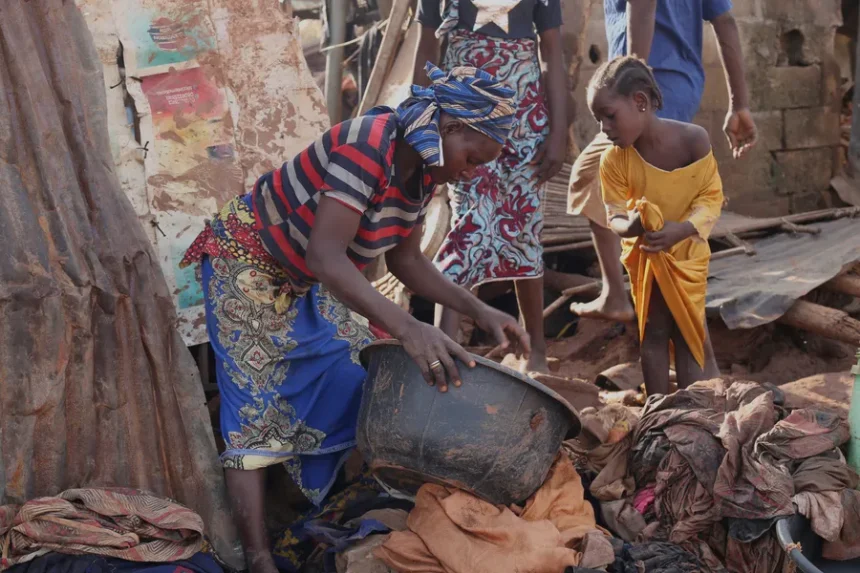Authorities in Nigeria have confirmed that more than 200 people have died, while at least 500 others remain missing, following catastrophic floods that struck the central city of Mokwa and surrounding districts last week.
Local officials told the BBC that rescue efforts have been suspended, as the chances of finding survivors have diminished significantly.
“We no longer believe anyone can be found alive,” said a Mokwa district official.
Worst Floods in 60 Years
The floods — said to be the worst in six decades — followed torrential rainstorms that overwhelmed the Mokwa, Tifin Maza, and Anguwan Hausava areas.
Some residents claim the collapse of a nearby dam worsened the disaster, though authorities have not confirmed any structural failure.
In the aftermath, officials are planning mass grave exhumations to prevent potential outbreaks of disease, according to Mokwa District Chief Muhammadu Aliyu.
Economic and Humanitarian Fallout
Nigeria’s National Emergency Management Agency (NEMA) announced it has begun distributing aid packages to affected families. However, damaged roads and bridges have severely disrupted local transportation and trade, worsening the economic impact.
President Bola Tinubu confirmed that security forces have been deployed to assist in recovery efforts, and rescue equipment and temporary shelters are being sent to the disaster zone.
Recurring Tragedy During Rainy Season
Flooding is a recurring crisis in Nigeria, particularly during the rainy season from April to October. In 2022, over 600 people lost their lives and 1.3 million were displaced due to similar weather events. Floods in 2024 also led to fatalities and mass displacement.
As climate change accelerates, experts warn that infrastructure improvements and disaster preparedness are urgently needed to mitigate future catastrophes.







